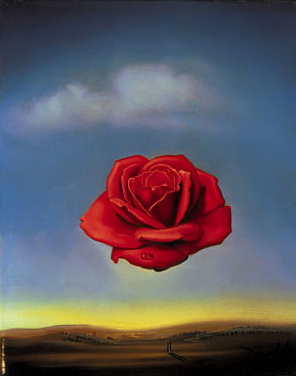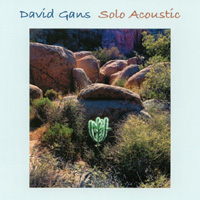
The Slow Trains Ten
writers on the creative life
featuring David Gans
David Gans' live debut solo album, Solo
Acoustic (Perfectible Recordings), was released in 2001, adding more luster to an already shining,
multifaceted career. In addition to being the host of the nationally syndicated Grateful
Dead Hour radio show for fifteen years, he is the co-author of Playing
in the Band: An Oral and Visual Portrait of the Grateful
Dead; the author of Conversations
with the Dead; and the editor of Not
Fade Away: The Online World Remembers Jerry Garcia. His musical credits include producing Stolen Roses: Songs of the Grateful Dead,
co-producing the Dead's Gold Record-winning boxed set, So Many Roads (1965-1995), and Might as Well: The Persuasions Sing Grateful Dead.
It was in the mid-1990s, after more than 20 years of earning a living as a journalist and
radio producer, that David decided it was "time to put my own music back on the front burner where it belongs." In 1997, he and Eric
Rawlins released the CD, Home By Morning, which featured instrumental support by the likes of influential mandolin maestro David Grisman and pedal steel guitarist Bobby Black. His reputation
as a musician has enabled him to sit in with many highly regarded national acts, including moe, with whom he gigged at three sold-out
1997 shows in San Francisco; the String Cheese Incident, Peter Rowan, Vassar Clements, Merl Saunders, the Ominous Seapods, Vince Welnick, the Mickey Hart Band, Blueground Undergrass,Donna the Buffalo,
Dark Star Orchestra, Keller Williams, The
Persuasions, and many others.
 Also in 1997, David began working weekly with a rotating cast of players he collectively presented as The Broken Angels. On January 31, 1998, the band played a sold-out show at the legendary Fillmore Auditorium in San Francisco. Joining them were Dead bassist Phil Lesh and keyboardist Vince Welnick. The Broken Angels' biggest splash came later that year, when they recorded David's
"Monica Lewinsky." The CD single, which lampooned President Clinton's dalliances with the notorious White House intern, was a minor worldwide hit, greatly increasing David's musical profile. "Monica Lewinsky" also served to emphasize David's sense of humor, which continues to manifest itself on Solo Acoustic, both in "Down to Eugene" (co-written with Seattle singer-songwriter
Jim Page), which pokes affectionate fun at the vast legion of Deadheads, and his cover of "Normal," Martin Mull's devastatingly
accurate send-up of suburban married life among the formerly hip.
Also in 1997, David began working weekly with a rotating cast of players he collectively presented as The Broken Angels. On January 31, 1998, the band played a sold-out show at the legendary Fillmore Auditorium in San Francisco. Joining them were Dead bassist Phil Lesh and keyboardist Vince Welnick. The Broken Angels' biggest splash came later that year, when they recorded David's
"Monica Lewinsky." The CD single, which lampooned President Clinton's dalliances with the notorious White House intern, was a minor worldwide hit, greatly increasing David's musical profile. "Monica Lewinsky" also served to emphasize David's sense of humor, which continues to manifest itself on Solo Acoustic, both in "Down to Eugene" (co-written with Seattle singer-songwriter
Jim Page), which pokes affectionate fun at the vast legion of Deadheads, and his cover of "Normal," Martin Mull's devastatingly
accurate send-up of suburban married life among the formerly hip.
Since 1998, David Gans has played the role of troubadour, regularly hitting the road to bring his unique musical vision to an ever-growing legion of fans. Solo Acoustic stands as a
document of his musical life of the past few years, and, perhaps more
importantly, as a tantalizing hint at what lies ahead for this talented musician.
1. When did you start writing?
I don't remember. I think I was always doing creative writing. I
was the editor of the student body newspaper in grade school one
year. I remember writing some semi-bawdy fantasies when I was a
teenager, along with the usual tortured teenage poetry, and I
contributed some eminently forgettable material to my high school
literary magazine. I wrote record reviews for an underground
newspaper, and some atmospheric stuff that I have since lost for my
ownself while in college. I started writing for money in the mid
'70s and haven't stopped, though I earn most of my living making
radio and playing (and writing) music these days.
2. What is your writing routine like?
It's torture. I never had any discipline. When I have a nonfiction
writing gig, I collect the information and then stare at it until a
day or two before the deadline, then duck phone calls and emails
until well past the deadline, whereupon I get down to it and it
always comes out pretty good.
I have never managed to develop a more wholesome way of working.
Writing music is similarly scattershot, but I don't have deadlines to
work with so the craven interpersonal behavior isn't a factor. I
tend to keep the lyrics in my head for a long time, occasionally
pushing them around on paper, until I have a pretty solid idea of
what it's supposed to sound like. Then I pick up the guitar and
start to make it into music. I actually have a good reason for this:
the more I can conceive of the music before I pick up the guitar, the
less I am bound to the habits and conventions of the guitar. That's
one of the reasons why many of my songs tend not to sound like
everybody else's guitar-driven songs.
3. Who are some of your favorite writers, and which
writers have had the strongest influence on you?
William Kotzwinkle -- I fell in love with "The Fan Man" and have
loved just about everything of his I have read since. He has written
in many styles and many worlds, which impresses me greatly -- the way
John Sayles has never made two movies that are too much like the
others.
Jerzy Kozinski, while not so versatile as Kotzwinkle, impressed me
deeply with the fierce power of his storytelling.
W.P. Kinsella -- the Native American stores more than the baseball
stuff. He evinces a great love for the people and places he writes
about.
Kurt Vonnegut showed me how to use humor and fantasy to address
real-world issues.
John Irving, Ken Kesey, Richard Brautigan, and John Lennon all lent
elements of their voices to mine.
Note that I have never published a word of fiction, except what's in
my songs. That's where my creative energy goes these days, and I
have only in the last five years or so come to recognize my own
powers as a storyteller. I don't write very many songs (I wish I
were more prolific), but every song I have written in the last few
years has been a keeper and a step forward.
I am slowly working toward being able to write a novel. I have some
ideas, characters, metaphors and powerful emotions to bring to that
task, when I can concentrate. I figure I had to get out there and
live a life before I could start writing in earnest, and I have
collected some important experiences.
4. Besides writing & music, what are you most
passionate about in your life?
These days I am passionate about the decline of American society. I
am not sure what I can do about it, but I fear we are heading in a
very unfortunate direction, with an increasingly apathetic and
easily-manipulated polity that can't be bothered to find out what's
going on and vote to save their own asses.
5. Where do you trace your musical roots back to,
and/or, which musicians do you most admire today?
I played the clarinet as a kid and learned some classical pieces in
school, but it was the Beatles who turned me into a musician. When I
was 15, my older brother set two of my poems to music and then taught
me the chords; from that moment on, it was all guitar all the time.
My heroes at first were Crosby, Stills and Nash and the Beatles, and
then I got into the singer-songwriters: Jackson Browne, Steve
Goodman, John Prine, Elton John, Cat Stevens, et al. My
consciousness was pretty well-formed by the time I saw the Grateful
Dead in 1972, and then everything had to be readjusted. From the
Dead I learned about improvisation, and about storytelling: there is
a narrative structure in my show that is rarely explicit but always
present.
I choose songs by other writers that will help me tell my own story.
In many instances it's only a line or a phrase that I connect with,
but that's usually enough.
6. Where are your favorite places to travel?
My wife, Rita, turned me into a vacation-taker. We have been to Utah
and Hawaii and Paris two or more times together, and I love all those
places. Australia was a great experience, and I'd like to go back
there when we can afford it. I want to see some other places, too,
like Machu Picchu, Greece, Alaska... the whole dang world if there's
time and resources enough to get us there.
7. Where do your best ideas come from, or, what
creates your most inspired state?
I get a lot of ideas while consuming other people's creative output.
I usually have a notebook with me when I go out to see live music.
it's not about stealing licks or images -- it's about being in that
place where the energy is high and the ideas are flowing. I'll write
down a phrase or a couplet, then come back to it later to see if it
sprouts into a workable idea.
I also have 30+ years of notebooks, journals and working papers to
revisit. I wrote some very good material when I was young and lacked
self-confidence; I have been amazed at some of the things that I have
retrieved from old tapes, buffed up and put into the working
repertoire.
8. Do you have any interesting vices that you'd care
to share, and have they helped or hindered your writing?
I like to smoke a little pot when I'm doing improvisation things like
playing music, writing songs and making love.
9. Yeats said that the only things worth writing about
are sex and death -- what would your list include?
Those two umbrellas cover most of the terrain, ultimately. I wish I
were capable of writing light, frivolous, observational stuff, but I
don't get a lot of ideas along those lines. In recent years I have
written some socially-conscious material, e.g. "An American Family"
-- which started out as a snide portrait of a sort of prissy guy I
know, but turned into a piece in the voices of three members of a
family in grave economic straits. It's not too fashionable to write
about important matters these days, but I think it's time for artists
to get back in the business of changing minds and inspiring hearts.
10. What's next for your writing?
I have been looking for collaborators. I've said "no thank you" to a
lot of lyrics given to me by friends, but I recently brought home a
lyric from a Vietnam vet in Florida that I think is going to become a
song.
Prose-wise, I would like to publish two more books of interviews with
musicians, but aside from that I am waiting for my fiction writing to
emerge when it's ready.
©2002 by David Gans





